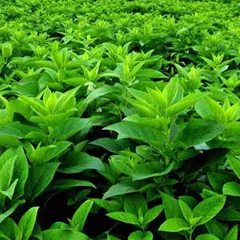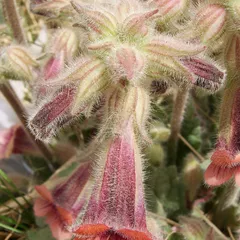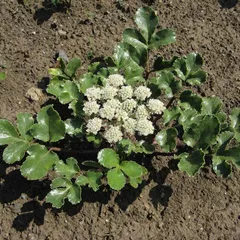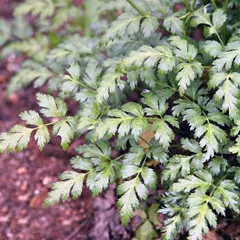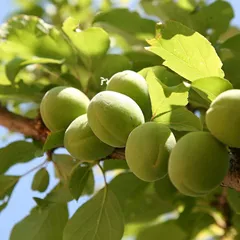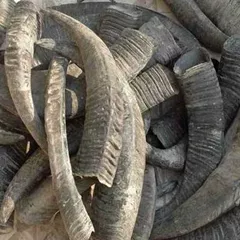Zeng Ye Tang
Zeng Ye Tang
Chinese: 增液汤
Pinyin: Zēng Yè Tāng
Other names: Increase the Fluids Decoction, Scrophularia and Ophiopogon Combination
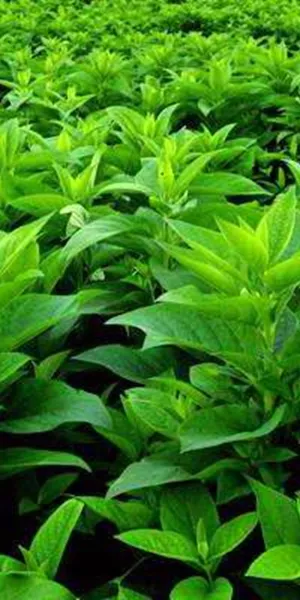
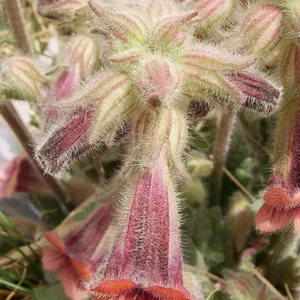
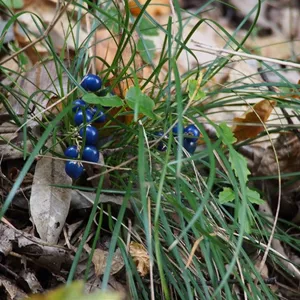
Zeng Ye Tang
Zeng Ye Tang
Chinese: 增液汤
Pinyin: Zēng Yè Tāng
Other names: Increase the Fluids Decoction, Scrophularia and Ophiopogon Combination
Number of ingredients: 3 herbs
Formula category: Formulas that enrich Yin and moisten Dryness
Conditions for which it may be prescribed: HemorrhoidsConstipationHyperthyroid and three other conditions
- Nourishes Yin and Essence
- Lubricates Dryness
Contraindications: Contraindicated for severe Dryness since this formula is not strong enough for... Contraindicated for severe Dryness since this formula is not strong enough for such cases. see more
Source date: 1798 AD
Source book: Systematic Differentiation of Warm Pathogen Diseases
The information provided here is not a replacement for a doctor. You shouldn't use it for the purpose of self-diagnosing or self-medicating but rather so you can have a more informed discussion with a professional TCM practitioner.
Zeng Ye Tang is a 3-ingredient Chinese Medicine formula with Ningpo Figwort Roots (Xuan Shen) as a principal ingredient.
Invented in 1798 AD, it belongs to the category of formulas that enrich Yin and moisten Dryness. Its main actions are: 1) nourishes Yin and Essence and 2) lubricates Dryness.
In Chinese Medicine health conditions are thought to arise due to "disharmonies" in the body as a system. These disharmonies are called "patterns" and the very purpose of herbal formulas is to fight them in order to restore the body's harmony.
In this case Zeng Ye Tang is used by TCM practitioners to fight patterns like Body Fluids Deficiency, Large Intestine Dryness or Dryness in Large Intestine. From a Western Medicine standpoint, such patterns can give rise to a range of conditions such as constipation, irritable bowel syndrome or hemorrhoids for instance.
On this page, after a detailed description of each of the three ingredients in Zeng Ye Tang, we review the patterns and conditions that Zeng Ye Tang helps treat.
The three ingredients in Zeng Ye Tang
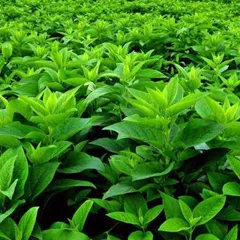
Xuan Shen is a king ingredient in Zeng Ye Tang. Like the name indicates, it means it has more power than other ingredients in the formula.
1. Ningpo Figwort Roots (Xuan Shen)
Part used: Dried rhizome
Nature: Cold
Taste(s): Bitter
Meridian affinity: Large intestineLiverStomach
Category: Herbs that cool the Blood
In general Xuan Shen's main actions are as follows: "Expels true or Internal Heat and cools the Blood. Tonifies the Yin. Reduces inflammations and drains Fire toxicity. Reduces hard nodules, especially associated with the lymph."
In the context of Zeng Ye Tang, it is used because it nourishes the Yin and generates Fluids, while moistening what is dried and softening what is hard.

Di Huang is a deputy ingredient in Zeng Ye Tang. This means it helps the king ingredient(s) treat the main pattern or it serves to treat a coexisting pattern.
2. Unprepared Rehmannia (Di Huang)
Part used: Prepared dried root tuber
Nature: Cold
Taste(s): Sweet
Meridian affinity: HeartKidneyLiver
Category: Herbs that cool the Blood
In general Di Huang's main actions are as follows: "Expels Heat by Cooling Blood. Tonifies Yin by promoting Fluid production. Soothes the Heart by calming Blazing Fire. Cools and nourishes."
In the context of Zeng Ye Tang, it is used because it nourishes the Yin, clears Heat, and cools the Blood.

Mai Dong is a deputy ingredient in Zeng Ye Tang. This means it helps the king ingredient(s) treat the main pattern or it serves to treat a coexisting pattern.
3. Dwarf Lilyturf Roots (Mai Dong)
Part used: Dried root tuber
Nature: Cool
Meridian affinity: HeartLungStomach
Category: Tonic herbs for Yin Deficiency
In general Mai Dong's main actions are as follows: "Replenishes Yin Essence and promotes secretions. Lubricates and nourishes the Stomach. Soothes the Lung. Nourishes the Heart."
In the context of Zeng Ye Tang, it is used because it assists in enriching and moistening the Yin, especially of the Stomach and Intestines.
Conditions and patterns for which Zeng Ye Tang may be prescribed
It's important to remember that herbal formulas are meant to treat patterns, not "diseases" as understood in Western Medicine. According to Chinese Medicine patterns, which are disruptions to the body as a system, are the underlying root cause for diseases and conditions.
As such Zeng Ye Tang is used by TCM practitioners to treat three different patterns which we describe below.
But before we delve into these patterns here is an overview of the Western conditions they're commonly associated with:
Constipation Irritable bowel syndrome Hemorrhoids Aphthous ulcers Chronic pancreatis Hyperthyroid
Again it wouldn't be correct to say "Zeng Ye Tang treats constipation" for instance. Rather, Zeng Ye Tang is used to treat patterns that are sometimes the root cause behind constipation.
Now let's look at the three patterns commonly treated with Zeng Ye Tang.
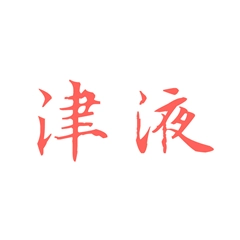
Body Fluids (Jin Ye) is one of Chinese Medicine's vital subtances. Learn more about Body Fluids in Chinese Medicine
Body Fluids Deficiency
Pulse type(s): Choppy (Se), Fine (Xi)
Tongue shape: Cracked
Symptoms: Dry skin Dry nose Dry lips Dry mouth Dry cough Dry tongue Dry throat Dry stools Dehydration Unusual thirst
Zeng Ye Tang is sometimes prescribed by TCM practitioners to treat Body Fluids Deficiency. This pattern leads to symptoms such as dry skin, dry mouth, dry nose and dry cough. Patients with Body Fluids Deficiency typically exhibit choppy (Se) or fine (Xi) pulses.
Body Fluids are all the fluids in the body, except from Blood. This means that their Deficiency will inevitable result in various symptoms of Dryness. Typical symptoms include dry skin, dry mouth, dry nose, dry cough, dry lips and dry tongue.
A Deficiency of Body Fluids can cause Yin Deficiency but... read more about Body Fluids Deficiency
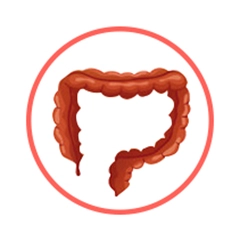
The Large Intestine is a so-called "Fu" Organ. Learn more about the Large Intestine in Chinese Medicine
Large Intestine Dryness
Pulse type(s): Fine (Xi)
Symptoms: Dry mouth Thin body Dizziness Dry stools Dry throat Bad breath
Zeng Ye Tang is sometimes prescribed by TCM practitioners to treat Large Intestine Dryness. This pattern leads to symptoms such as dry stools, dry mouth, dry throat and thin body. Patients with Large Intestine Dryness typically exhibit fine (Xi) pulses.
This pattern is featured by a state of Dryness and Body Fluids Deficiency in the Large Intestine and the Stomach, hence the symptoms of dry mouth, dry throat and dry stools. Also, it always happens together with Stomach Yin Deficiency, because the Stomach and the Large Intestine are closely... read more about Large Intestine Dryness

The Large Intestine is a so-called "Fu" Organ. Learn more about the Large Intestine in Chinese Medicine
Dryness in Large Intestine
Pulse type(s): Fine (Xi)
Tongue color: Pale, Red
Symptoms: Thirst Dry mouth Dizziness Dry stools Dry throat Bad breath Constipation Thin body lacking strength
Zeng Ye Tang is sometimes prescribed by TCM practitioners to treat Dryness in Large Intestine. This pattern leads to symptoms such as constipation, thirst, dry stools and dry mouth. Patients with Dryness in Large Intestine typically exhibit fine (Xi) pulses as well as a pale, red tongue.
Formulas similar to Zeng Ye Tang
Zeng Ye Cheng Qi Tang is 60% similar to Zeng Ye Tang
Liang Di Tang is 50% similar to Zeng Ye Tang
Yi Wei Tang is 40% similar to Zeng Ye Tang
Wu Shi Lian Mei Tang is 40% similar to Zeng Ye Tang
Yang Yin Qing Fei Tang is 38% similar to Zeng Ye Tang
Qing Ying Tang is 33% similar to Zeng Ye Tang

